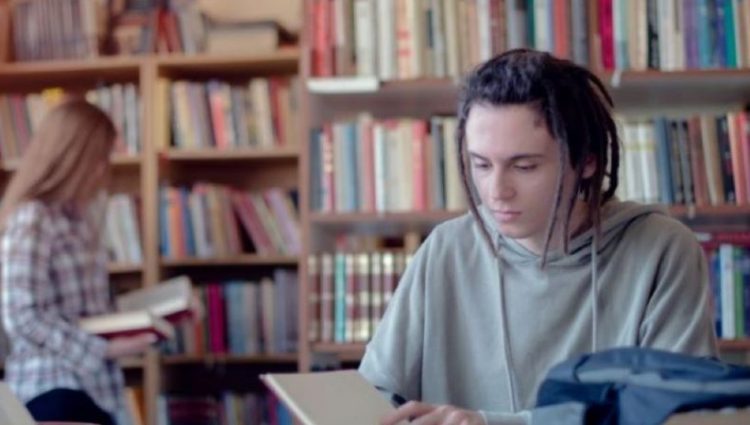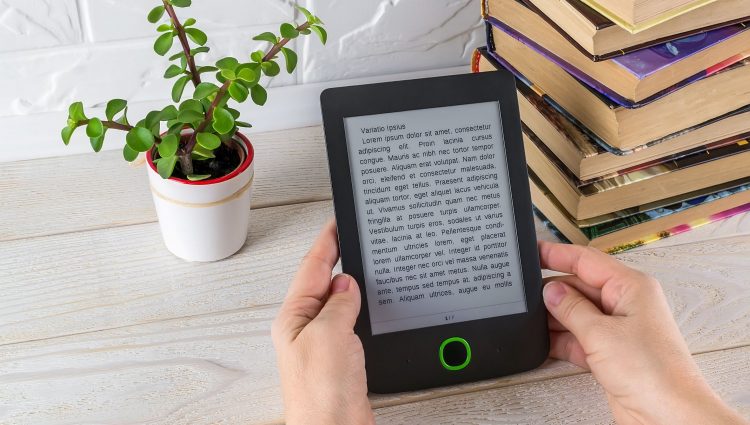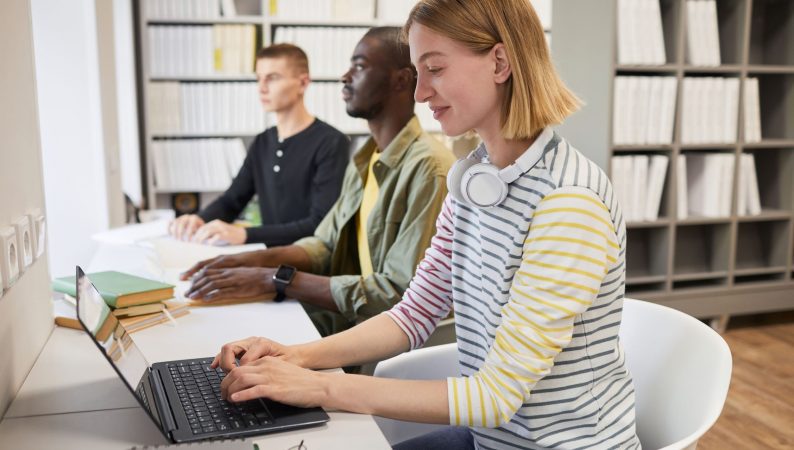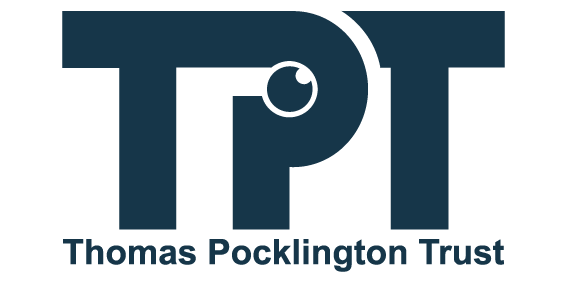Although I was born with bilateral congenital cataracts and nystagmus, for the first two decades of my life I had never really considered myself to be someone living with a sight impairment. My sight was poor, and I knew I would never be able to drive, but I muddled my way through school and the first years of university.
Few people really understood that I had significant difficulties with my vision, aside from the odd comment about my ‘wobbly eyes’ and my exceptionally poor performances at dreaded school sports days! I had very few adjustments and no specialist support with my studies. Although looking back, I think I would have benefited from more help. Other people in my family were registered blind with sight much worse than mine, so compared to them nobody seemed to think I had much to worry about.
Everything changed in 2018 when I was in my third year at university. I was sitting in a lecture when within minutes a large part of the vision in my left eye turned into an iridescent swirl. I tried to write this off as a symptom of tiredness. But when I woke up the next day the patch of vision had mostly turned grey and I couldn’t see anything through it.
After a trip to the emergency eye clinic at my local hospital I was diagnosed with a juvenile form of macular degeneration, caused by extreme short-sightedness. Unfortunately, there is no cure for this condition, but I was treated with injections into my eye (which is about as pleasant as it sounds!) to temporarily limit some of the damage. I was told that my vision was very likely to get slowly worse, which it has.
Coming to terms with sudden sight loss was tough at first, particularly in terms of mobility. I struggled to walk around safely, especially in the dark, and I found the sun very dazzling. I stopped going out much alone because it was too stressful. Doing things indoors got more difficult too.
I loved to collect books and read for pleasure, but I couldn’t read standard size print anymore and this upset me. I started to worry a lot about the future too. Sometimes I worried about small things that seemed insignificant, getting tearful as I wondered what it would be like to never see the moon in the night sky again, and then getting cross at myself for being silly. I also worried about more ‘down to earth’ problems – if my eyesight continued to get worse, would I find it harder to get a job after graduating? As well as feeling sad, I also felt quite angry that this was happening to me and that other people didn’t seem to ‘get it’.
Eventually I realised that to adjust to life with less vision, I had to reach out to others and get some practical help with the difficulties I was facing. I hoped that by getting support with day-to-day activities, I would start to feel better about my future and my overall wellbeing would improve. Fortunately, I was confident with technology and had already managed to adjust the font sizes on my phone and laptop, so I did some research online about the help I could get. I was relieved to find out about my local sensory service, the reasonable adjustments I could ask for at university, and the many sight loss charities out there.
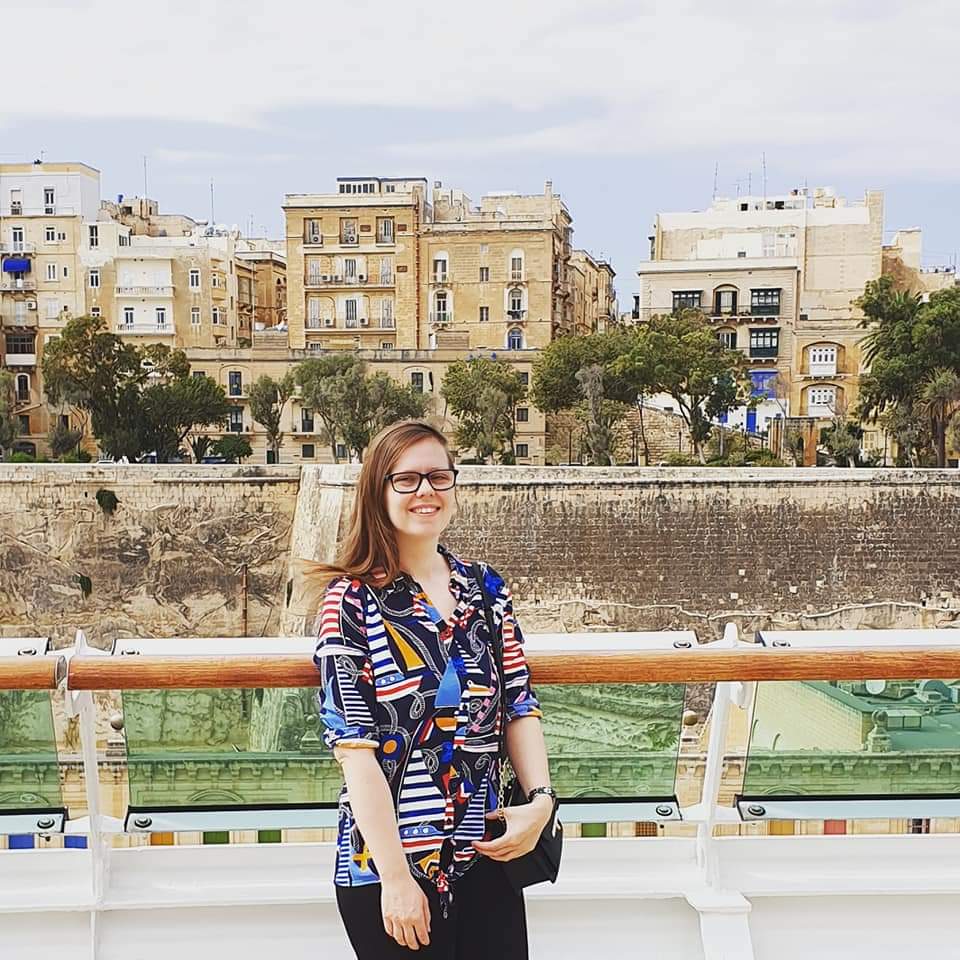 Soon after my diagnosis I was officially registered sight impaired (partially sighted). Going through the registration process can be tough for many people, but for me it was actually a relief. Before my eyesight had worsened I had been in an awkward in-between space, never feeling like a fully sighted person, but not thinking my vision was bad enough to consider myself partially sighted. Getting registered helped with this as it allowed me to accept that my sight loss was significant, and that I was not wasting anyone’s time trying to get support in place.
Soon after my diagnosis I was officially registered sight impaired (partially sighted). Going through the registration process can be tough for many people, but for me it was actually a relief. Before my eyesight had worsened I had been in an awkward in-between space, never feeling like a fully sighted person, but not thinking my vision was bad enough to consider myself partially sighted. Getting registered helped with this as it allowed me to accept that my sight loss was significant, and that I was not wasting anyone’s time trying to get support in place.
Once I was registered, I felt confident talking to my university about my sight loss. With their support, I decided to complete the third year of my degree over two academic years, a decision which I am so pleased I made, as it gave me the time to get used to this big change in my life. I don’t think I would have managed to graduate without accepting this help.
After being registered, I went to an in-person course run by RNIB about living well with sight loss. This was such a positive experience for me as I learnt more about things that could help me live life to the full, such as long cane training, accessible technology, and emotional and social support from charities. The person who ran the course was totally blind and was a Guide Dog owner. This really inspired me as I thought – if this person can be employed travelling around the area delivering courses, then what’s stopping me from doing a job like this in the future if I want to? It also made me pick up the phone and enquire about applying for my own Guide Dog.
A few months after that I had long cane training which helped me feel more confident about travelling alone. I do still struggle with anxiety about going out and about sometimes. But I now know that finding this hard from a psychological perspective, as well as from a practical one, is something many blind and partially sighted people go through. It’s reassuring to know that I’m not alone.
Feeling frustrated, upset, angry, lonely and a whole other range of emotions is so common whether you were born blind or partially sighted, or if you’re losing vision later in life. Dealing with the initial shock was the worst thing for me. I still experience the above emotions every now and again. I think it’s better to acknowledge these feelings rather than pretend they are not there.
I find the best thing you can do to maintain good mental health is to focus on what you can do, rather than what you can’t. In fact, I enjoy the challenge of finding new ways to do things that have become more difficult. For example, instead of giving up my love of reading, I now read mostly on my Kindle where I can adjust the font size. I have also discovered a love of audiobooks – although I still buy physical books to display on my bookcase! I try and live more in the moment too, instead of worrying about the ‘what-ifs’ of the future.
The most important thing to remember is that losing vision is hard, but if you are open to embracing it when you are ready, then you’ll find there’s a way around almost every obstacle.

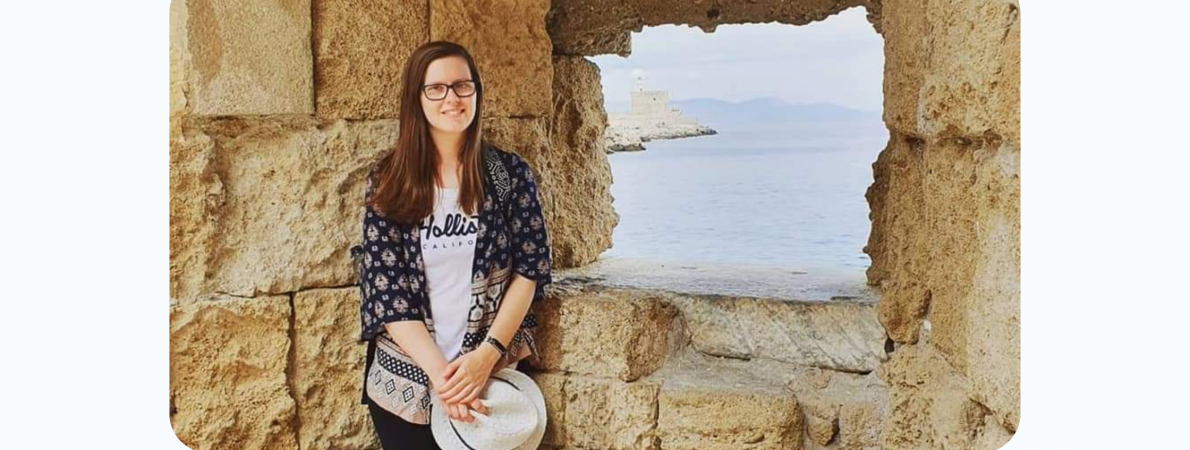
 Soon after my diagnosis I was officially registered sight impaired (partially sighted). Going through the registration process can be tough for many people, but for me it was actually a relief. Before my eyesight had worsened I had been in an awkward in-between space, never feeling like a fully sighted person, but not thinking my vision was bad enough to consider myself partially sighted. Getting registered helped with this as it allowed me to accept that my sight loss was significant, and that I was not wasting anyone’s time trying to get support in place.
Soon after my diagnosis I was officially registered sight impaired (partially sighted). Going through the registration process can be tough for many people, but for me it was actually a relief. Before my eyesight had worsened I had been in an awkward in-between space, never feeling like a fully sighted person, but not thinking my vision was bad enough to consider myself partially sighted. Getting registered helped with this as it allowed me to accept that my sight loss was significant, and that I was not wasting anyone’s time trying to get support in place.
